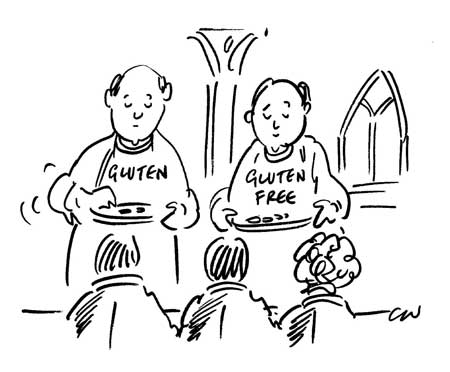|
|
|
Towards allergen-free worship |
Non-Catholic churches wishing to accommodate communicants who are allergic to ingredients other than gluten, are now able to do so by using wafers from Ener-G Foods, which are not only entirely gluten-free but are also free from wheat, dairy, egg, sugar, nuts and corn. As the Church begins to wake up to the needs of its allergic adherents, other changes are afoot in the aisles that should help to facilitate access for this group, in the same way that ramps have done for those in wheelchairs and Braille bibles have for the blind.
Click here for more research reports
First Published in March 2008 |













